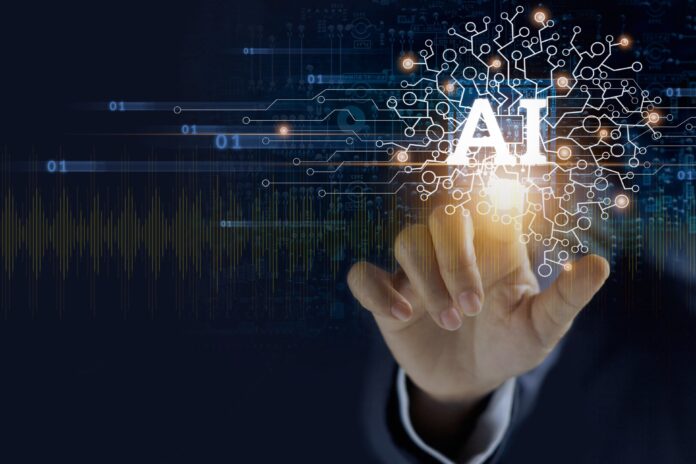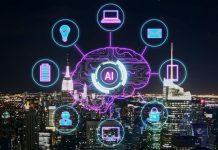Making use of healthcare app development services in this era feels like a world where healthcare is like a personalized journey towards wellness. This vision is becoming increasingly real thanks to a powerful new force: generative AI in healthcare. Unlike traditional AI that analyzes existing data, generative AI takes things a step further. It can create entirely new, realistic information, such as medical reports, detailed medical images, or even simulations of potential drug interactions with the human body.
This groundbreaking capability holds immense potential to modernize healthcare.
Key Takeaways
- Generative AI transforms healthcare by creating new medical content and supporting patient care through data analysis.
- Generative AI chatbots streamline patient intake, provide personalized recommendations, and improve health outcomes.
- It accelerates drug discovery by simulating drug interactions, saving time and resources in medication development.
- In mental healthcare, generative AI offers initial assessments, personalized therapy tools, and culturally sensitive support.
- While promising, generative AI requires robust data security and ethical guidelines to mitigate biases and ensure patient trust.
Table of Contents
Revolutionizing the Patient Experience
Generative AI chatbots powered by natural language processing can streamline the patient intake process. Picture having a warm and supportive AI companion that engages in conversations with you to gather your complete medical history. By doing so, it ensures that the information is accurate and saves you valuable time.
Generative AI technology not only focuses on efficiency but also delves into the analysis of patient data. It assists healthcare professionals in making critical decisions. This advanced technology can offer personalized treatment recommendations, predict potential health risks, and enable doctors to deliver targeted care. Ultimately, this proactive approach leads to improved health outcomes and a more personalized approach to your well-being.
Accelerating Drug Discovery
The conventional approach to developing new medications is widely known for being slow and costly. It often takes several years and significant financial investments before a single drug becomes available to patients. However, generative AI healthcare holds the promise of substantially expediting this process. By using virtual simulations to explore potential drug molecules and their interactions within the body, researchers can efficiently test a vast number of variations. This process takes a fraction of the time it would typically take. As a result, they can swiftly identify promising candidates. Ultimately, this accelerates the development of life-saving treatments.
How Generative AI is Transforming Mental Healthcare
Mental health is a crucial aspect of overall well-being, yet access to qualified professionals often remains limited. This is due to factors like cost, stigma, and geographic location. Generative AI offers a promising avenue to bridge this gap and revolutionize mental healthcare delivery. Here’s how:
Supporting Initial Assessments
Initial Assessments can be made by chatbots that can conversationally ask targeted questions. They gather valuable data to identify potential symptoms of anxiety, depression, or other mental health concerns. This can help individuals become more aware of their mental health and encourage them to seek further professional help if needed.
Accessible Support and Resources
Chatbots can offer ongoing support and resources to individuals managing mental health conditions. Imagine a friendly AI companion that provides reminders for medication, offers relaxation techniques, or connects users to relevant online communities and support groups. This readily available support system can empower individuals and promote self-management of their mental health.
Personalized Therapy Tools
AI-powered tools can analyze a user’s communication patterns and emotional tone during interactions with chatbots. This data can be used to tailor therapy exercises, suggest coping mechanisms, and even generate personalized guided meditations or visualizations.
Language Breakdown and Cultural Sensitivity
Generative AI can be trained on vast amounts of multilingual data, making it possible to develop culturally sensitive chatbots. These chatbots can communicate effectively with individuals from diverse backgrounds. This can significantly reduce barriers to accessing mental health support for non-native speakers or those from marginalized communities.
Beyond Diagnosis and Treatment
The applications of generative AI in healthcare extend far beyond the realm of treatment and diagnosis. Here are examples of AI in healthcare:
- Medical Imaging Analysis: AI algorithms are already being used to analyze medical images like X-rays, CT scans, and mammograms. These AI models can help radiologists identify abnormalities and diagnose diseases like cancer or lung nodules with greater accuracy and efficiency.
- Virtual Assistants and Chatbots: AI-powered virtual assistants and chatbots are increasingly being used to answer patient questions. They also schedule appointments and even provide basic health information. This can free up doctors’ time for more complex tasks and improve patient access to care.
- Robot-Assisted Surgery: Robotic surgery systems use AI to improve precision and control during minimally invasive procedures. The surgeon controls the robot’s movements, but the AI can provide real-time feedback and guidance.
- Drug Dosage Optimization: AI can analyze a patient’s medical history, genetics, and current medications. Through this analysis, it can recommend the most effective and safe dosage for new medications.
- Disease Prediction and Prevention: AI algorithms can analyze vast amounts of patient data to identify patterns and trends. These patterns may indicate a risk of developing certain diseases. This allows for early intervention and preventive measures.
Challenges and Considerations
While the potential of generative AI in healthcare is undeniable, there are some cons of AI in healthcare to address before widespread adoption.
Generative AI relies heavily on vast amounts of patient data. Robust data security measures and clear ethical guidelines are crucial to ensure patient privacy and trust in the healthcare system. AI models are only as good as the data they are trained on. If training data contains biases, it can lead to biased algorithms that could potentially impact patient care. Mitigating bias in AI development is crucial for ensuring fairness and ethical use.
As generative AI becomes more sophisticated, clear regulations and oversight frameworks are necessary. These are needed to ensure its safe and ethical use in healthcare. This includes ensuring transparency in how AI models are developed and used.
Building the Future with Mobile App Developers
Mobile app development services play a vital role in integrating generative AI into the healthcare landscape. Here in the heart of Texas, there’s a wealth of talented Mobile App Developers in Dallas who can create user-friendly interfaces for patients and healthcare professionals to interact with generative AI tools.
By working collaboratively, healthcare providers, researchers, and mobile app developers can harness the power of generative AI. They can build a future of healthcare that is more efficient, personalized, and effective for all.
The Takeaway
Generative AI is on the cusp of revolutionizing the healthcare industry. From personalized medicine to accelerated drug discovery, this technology has the potential to transform how we diagnose, treat, and prevent diseases. As we navigate the risks of AI in healthcare and opportunities that lie ahead, one thing is certain: generative AI is poised to usher in a new era of healthcare innovation. This will lead to a healthier future for all.











